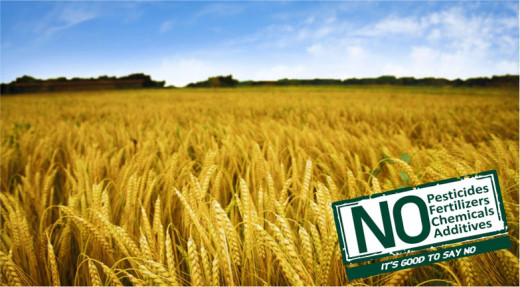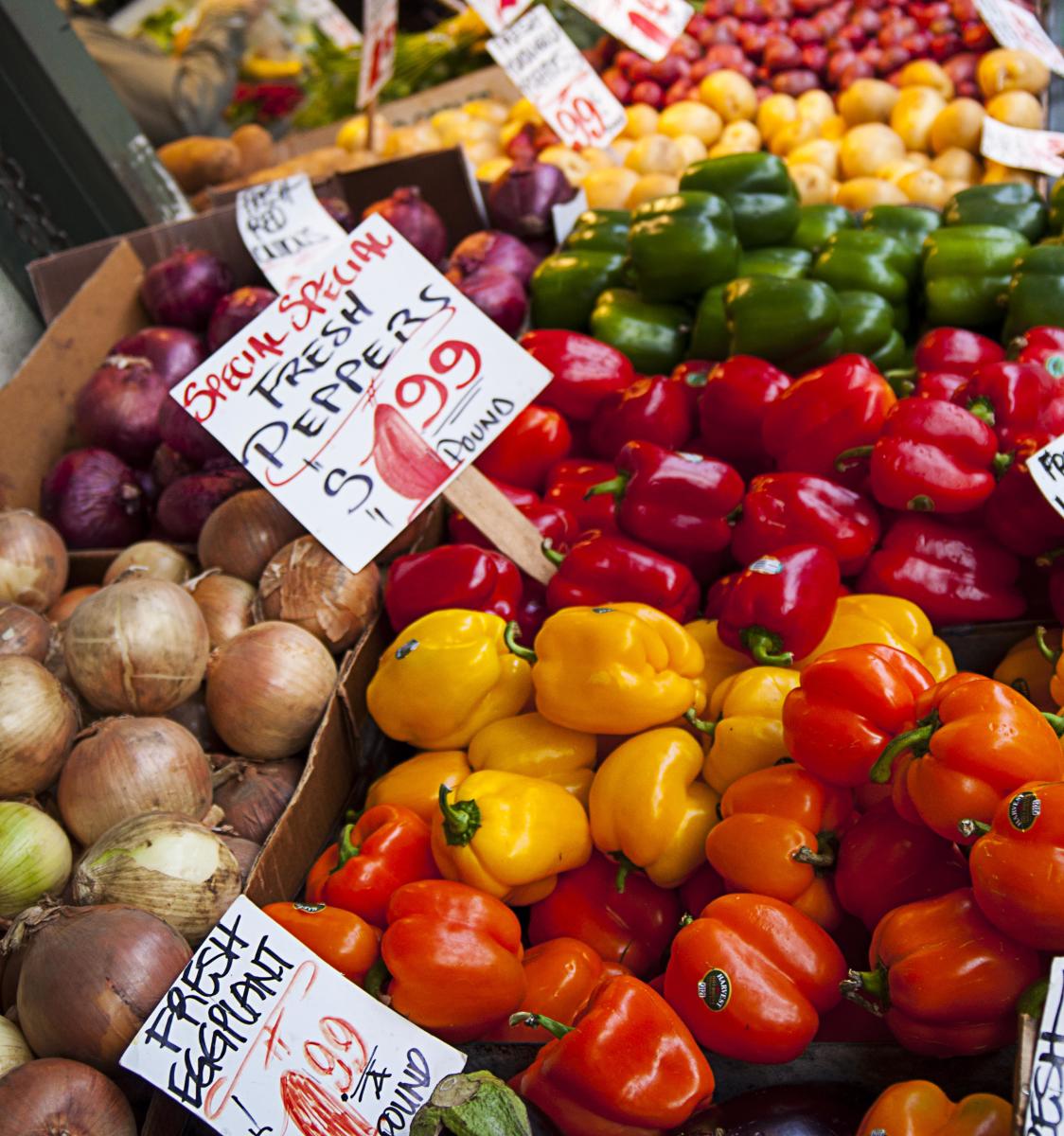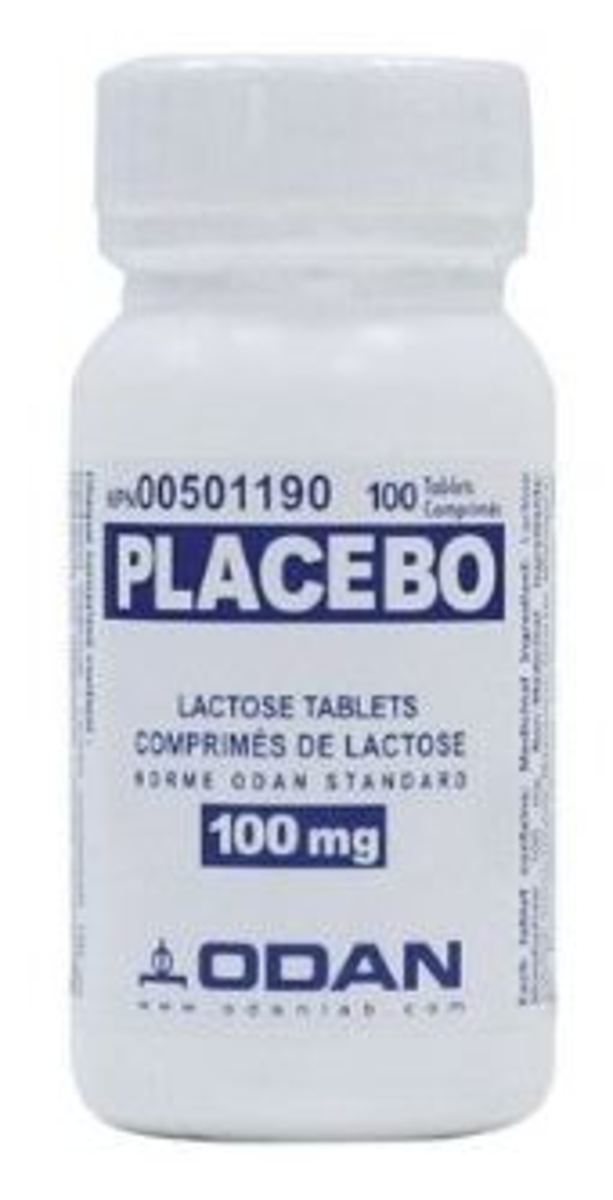Organic World
Adulteration
Food is the energy source for human being but what happens when people use this source in hazardous way just for their own personal benefit. Yes here we are talking about adulteration. This is a common word that we come across almost every day whenever we are purchasing any grocery, vegetable, or cosmetics. In current scenario, whenever we are consuming anything we are not consuming the nutrients alone. Along with it we are consuming the toxic chemicals and unhealthy adulterants which are making us hollow from inside by fading our immune system. Instead of knowing the facts, we cook and prepare these food items for our kids, husbands and other family members. For sure, avoiding food items is not the solution neither we can stop our craving for delicious products. Let’s try to understand adulteration and the alternatives we can use.
Adulterants can be any other low standard food item or non food item and it matches the appearance of the actual food product into which it is mixed. Hence identification becomes difficult
Many a times adulterants are such things which we can’t even imagine to eat like animal wastage, crushed brick etc. Vendor’s use them just enhance their business and earn more profit. Adulteration is mostly common in developing countries due to lack of regulatory bodies and over population but developed countries are also victims to this hazardous practise.
Here are few of the common food items of our daily routine with their adulterants
Food Item
| Adulterant
|
|---|---|
Mustard Seeds
| Argemone seeds
|
Black pepper
| Papaya seeds
|
Arhar dal
| Kessari pulse
|
Coffee powder
| Cereal scratch
|
Coriander powder
| Saw dust
|
Red chilli
| Red brick powder
|
Turmeric
| Metanil yellow colour
|
Parched rice
| Urea
|
White rice
| Sand
|
Tea
| Coal tar
|
These are few of the examples. Almost every food item we consume is adulterated with something or the other. There are regulatory bodies in each country to control such practises and maintain quality products. But in most of the countries they have f
Organic Farming

Organic Products
To completely avoid the food items is not a possible solution. Instead we can search for an alternate option i.e. Organic products. Organic products are those which are produced through agriculture without the use of any chemical fertilizers and pesticides with friendly environment. In such cases, plantation is done naturally with natural fertilizers to preserve and prevent the reproductive ability of the soil. Seeds, Soil and fertilizers are properly examined and worked upon for enhancing the regenerative capacity. Being produced without any harmful chemicals and pesticides, the products are highly nutritious and resistant to diseases. The major factor is that they are produced within the proper care and after proper management of the soil and seeds. Hence any doubt of adulteration is not possible. Also they are properly checked and verified for their nutritious value to pass the certificate of Organic.
Production of Organic food items is called Organic farming. It mainly promotes ecological balance by promoting cycling of resources and banning the use of synthetic pesticides. Organic farming also avoids irradiation, synthetics solvents and additives. Organic is not restricted to crop farming only; it equally refers to animal products also. In animal products GMO (Genetically modified organism) is very common. Basically what nature cannot do, human has done by crossbreeding which sometimes may be useful but sometimes not. Animals are injected with medicines to produce more milk or egg and also crossbred with different species to strengthen their power. This is against the law of nature but is still done to enhance the business and productivity. Organic is against the promotion of this practise and does not believe in hormonal injections. In short Organic means close to nature.
Benefits
- Nutrient Rich Food – Organic products are full of nutrients which are naturally available in a food item. They are not altered by injections and we eat what nature has gifted us.
- Pesticides free food – pesticides are chemicals like herbicides, and insecticides which are totally banned in organic food items. They may enhance the quantity of food but also enrich them with lots of chemicals. Organic food items helps in consuming chemical free products.
- Tastes Better – People addictive with processed food items like sugar may find it difficult to adjust with the taste of organic foods. But slowly and gradually, one will find that organic foods taste much better than processed food.
- Prevention of Diseases – Adulterated food items, processed food are the basic ingredients that cause common diseases due to lack of or over supply of required nutrients. Liver disorder, Diarrhoea, cancer, heart diseases are few of the common diseases caused by adulterated food items. Organic products help in prevention of these diseases by providing essential nutrients required by the body.
- Better for environment – As Organic are produced without the help of chemical fertilizers and pesticides, they are environment friend and does not cause any pollution.
- Cheaper in alternate ways – As Organic food helps in reducing common disease, it alternately reducing the medical expenses. Also a person is getting most of the essential nutrients from the food items itself; it is also reducing the consumption of extra diet or supplements. If one is placed closed to organic farms, it is incredibly cheaper to purchase directly from the farmer.
Disadvantage
In some ways, people may find it disadvantageous also due the scarce supply of Organic products in local markets. Organic farming is very limited in almost every country and also all products are not produced using organic farming. Hence the supply is limited and also the variety of products is also limited. As they are not genetically modified, it is difficult to get organic products in non seasonal time. Like, it’s difficult to find Organic Tomatoes in January.
Secondly due to limited supply, few of the organic products may be expensive to purchase than their processed item.
Organic Certification
Certification of Organic products is quite essential to differentiate it from the processed food items in order to supply healthy groceries to public. This certification is also required to assure quality products and prevent the consumers from being cheated by the commercial promoters. Generally the complete business of Organic products is certified by the governing bodies including farmers, Seed suppliers, Retailers etc. Requirement of Organic certificate vary from country to country and has set some standards for production, storage, packaging and distribution of the product.
Few of the countries with their organic products regulatory body
United States – USDA – United states department of Agriculture
Canada – Canadian Food Inspection Agency
United Kingdom – Department for environment, Food, and rural affairs
Australia – Department of Agriculture (Australia)
China – China Green Food Development Centre
India – Agricultural and Processed food products export development authority
Japan – Japanese Agricultural Standard
Singapore – The Agri-food and veterinary Authority of Singapore
India moving to Organic
In India, there are few of the organisations working for the promotion of organic products like Swanand, Patanjali, Sanjeevani Organic etc. Their main focus is towards enlightening the people for the use organic products and spreading awareness against the processed and adulterated food. They also work in spreading awareness for ayurvedic products which is the main knowledge source of India. Ayurved is a medical science that totally focuses on natural sources available to us and search for cures through natural herbs and yoga. These institutions believe in natural science and cures given to us by nature of even deadly diseases. Slowly their products are spreading all across the nation and out of country also due to their organic values. Local retails shops can easily be seen in local markets of India. The food item and other products are produced through organic farming and then properly crosschecked before letting them free for purchase in local markets. One can easily find list of commodities starting from kitchen groceries to bathroom products and then to cosmetics. All are herbal products with no side effects and can be easily trusted for their quality. Most important fact is that their products are not much expensive and are within the reach of common man. There may be slight difference between few of organic products and their processed item but that much difference is quite reasonable if their quality is compared. It’s difficult to discuss the list of product through this article as it includes almost everything that we can imagine in food items, pulses, juices, washing products, cosmetics, medicines etc. They have enabled India to opt for alternatives against the adulterated and processed food items. Therefore we can happily say that we are moving towards building a healthy nation.









